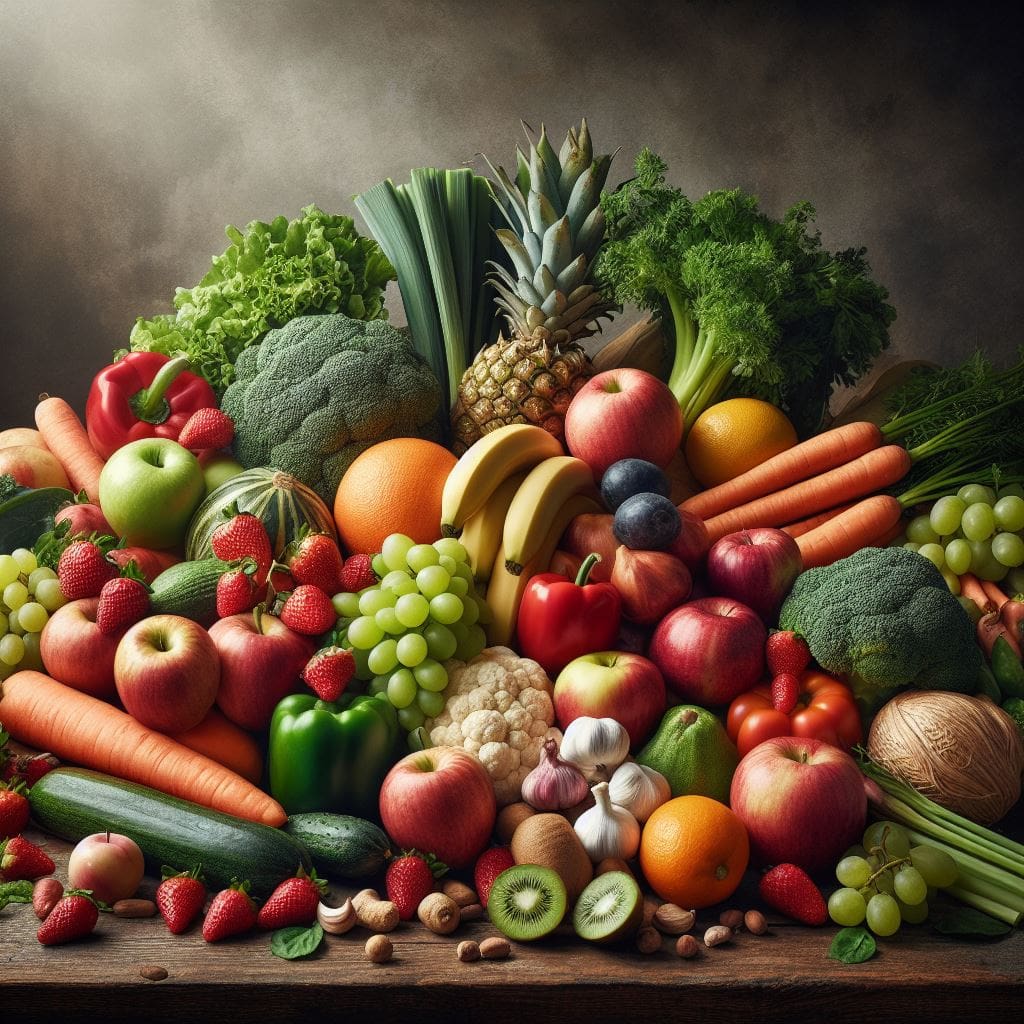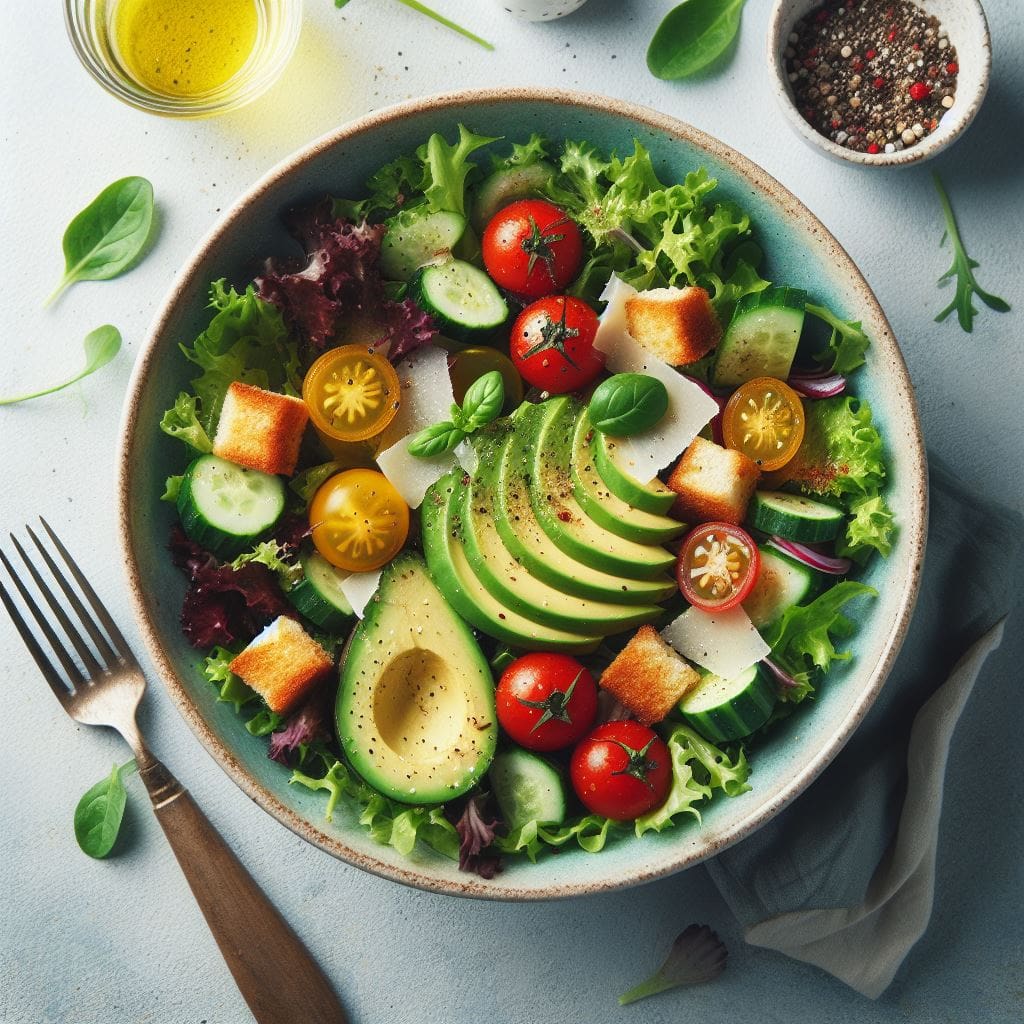
Eating a diet rich in fruits and vegetables is one of the best things you can do for your health.
Fruits and salads are packed with essential nutrients such as vitamins, minerals, fiber, and antioxidants that can help boost your immune system, improve your digestion, and promote overall wellbeing.
Fruits and salads are two common choices for appetizers before a meal.
They offer numerous health benefits, making them a preferred option for many individuals.
1. Benefits of Fruits

Provision of Vitamins and Minerals: Fruits serve as excellent sources of essential vitamins and minerals. Different types of fruits offer a wide range of nutrients, including vitamin C, vitamin A, potassium, magnesium, and more.
These nutrients are crucial for the proper functioning of our bodies.
Increased Fiber Intake: Fruits are rich in dietary fiber, which promotes the normal functioning of the digestive system. Dietary fiber can alleviate constipation and maintain intestinal health.
Natural Antioxidants: Fruits are packed with antioxidants, such as vitamin C and flavonoids, which combat the damage caused by free radicals. This helps reduce the risk of chronic diseases, such as heart disease, cancer, and diabetes.
Calorie Control: Fruits are generally low in calories, making them a valuable component of a healthy diet that supports weight management. Consuming fruits before a meal can enhance the feeling of fullness during the main course, reducing the likelihood of overeating.
Blood Sugar Management: Certain fruits, such as apples and oranges, are rich in fiber, which can slow the rise in blood sugar levels. This is particularly important for individuals with diabetes and those aiming to maintain stable blood sugar levels.
Quick Energy Source: The natural sugars found in fruits provide a rapid energy boost, making them ideal as a pre-meal or pre-exercise snack. They can also enhance alertness and concentration.
2. Benefits of Salad

Salads are a great way to incorporate fresh, raw vegetables and fruits into your diet.
Low in Calories and High in Fiber: Salads are typically low in calories and high in dietary fiber. Lettuce and other vegetables are rich sources of dietary fiber, which is beneficial for weight control and maintaining gastrointestinal health.
Diverse Nutrient Profile: Salad ingredients often include a variety of vegetables and fruits, offering an array of vitamins, minerals, and antioxidants. For instance, carrots are abundant in vitamin A, tomatoes provide ample vitamin C, and nuts are rich in healthy fats and protein.
Enhanced Digestion: The dietary fiber in vegetables and fruits found in salads aids in promoting regular digestive function. It can alleviate constipation and improve intestinal health.
Blood Sugar Regulation: Salads generally do not contain high-sugar ingredients, contributing to stable blood sugar levels. Additionally, they induce a feeling of satiety, helping to reduce calorie intake.
Abundant in Antioxidants: Salad components offer a rich source of antioxidants, safeguarding the body against free radical damage and reducing the risk of chronic diseases.
Dietary Variety: Salads diversify your diet by incorporating a wide range of vegetables, fruits, nuts, and protein sources, ensuring a broad spectrum of nutrients.
3. Why consume Fruits and Vegetables?
Diverse Nutrient Intake: Eating fruits and vegetables before meals provides an array of vitamins, minerals, dietary fibre, and antioxidants, ensuring dietary diversity to meet the body’s various requirements.
Portion Control: The dietary fibre in fruits and salads enhances satiety, reducing the likelihood of overeating before the main meal. This aids in portion control and supports weight management.
Blood Sugar Regulation: Consuming fruits and vegetables before a meal can mitigate the post-meal rise in blood sugar levels. The fibre in vegetables and fruits decelerates carbohydrate digestion, averting sudden spikes in blood sugar.
Promotion of Digestive Health: Dietary fiber in Fruits And Vegetables is vital for the proper operation of the digestive system, preventing constipation, and preserving intestinal health.
Appetizing Start: Fruits and vegetables, as light and appetizing choices, can help curb your appetite before the main course, facilitating portion size control.
Enhanced Nutrient Absorption: Certain vegetables and fruits contain vitamins and minerals that enhance the body’s absorption of nutrients from other foods, maximizing nutritional value in the diet.
Eating fruits and salads before a meal is a healthy practice that not only delights the palate but also lowers the risk of chronic diseases and promotes overall well-being.
Incorporating Fruits and vegetables into Your Diet
Now that you know some of the benefits of eating fruits and vegetables, it’s time to start incorporating them into your diet.
Here are a few tips for getting more fruits and salads into your meals:
Make a Smoothie: Smoothies are a great way to pack in a ton of fruits and vegetables into one delicious drink. Try blending spinach, kale, berries, and banana for a nutrient-packed smoothie that will keep you full and energized.
Add Fruit to Your Salad: Adding fruit to your salad can be a great way to add some sweetness and nutrients to your meal. Try adding sliced apples, berries, or mango to your next salad.
Snack on Fruit: Keep a bowl of fruit on your counter or desk for an easy and healthy snack option. Apples, bananas, and oranges are all great options that are easy to grab and go.
Make a Fruit Salad: Cut up a variety of fruits and toss them together for a colorful and delicious fruit salad. Try adding a drizzle of honey or a sprinkle of cinnamon for extra flavor.
Experiment with Different Vegetables: Don’t be afraid to try new vegetables in your salads or smoothies. Kale, spinach, beets, and carrots are all great options that are packed with nutrients.
Therefore, if you aim to shed pounds, regulate blood sugar, or simply relish delicious, nutritious food, consuming fruits and vegetables before a meal is a wise choice.
As we gather around the table, let’s celebrate the bounty of fruits and salads. They’re not mere appetizers; they’re nutritional powerhouses.
So, whether you’re savoring a crisp salad or biting into a juicy apple, know that you’re nourishing your body—one colorful bite at a time.


